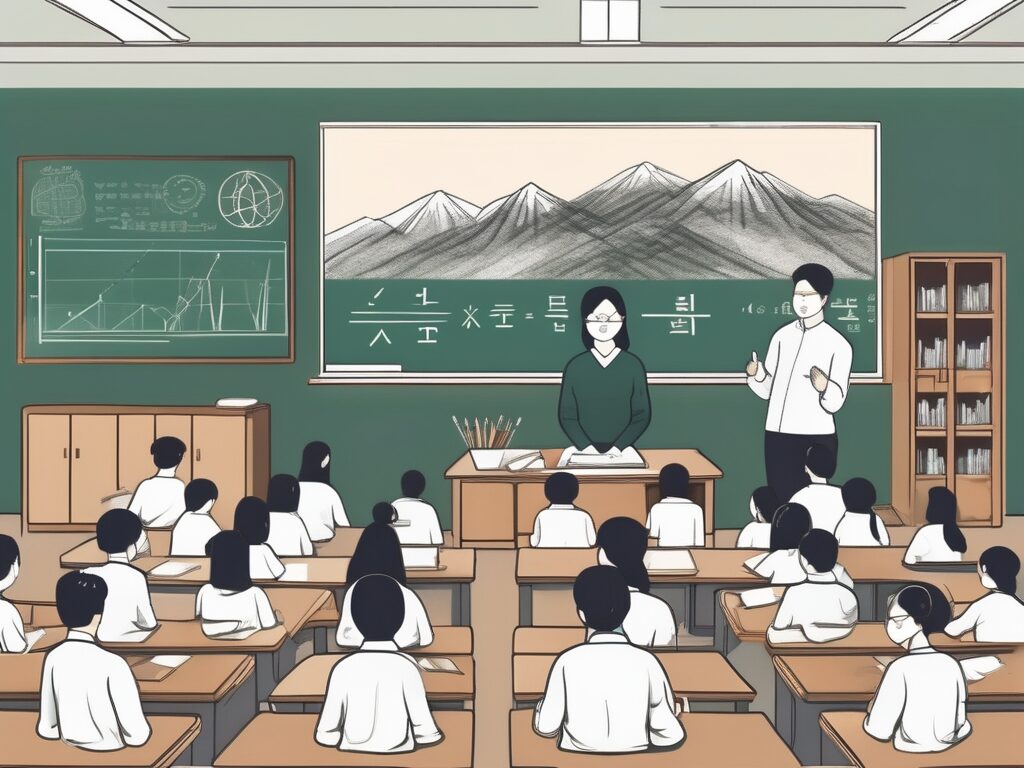South Korea, often referred to as the Land of the Morning Calm, is a popular destination for international teachers. With its rich cultural heritage, modern cities, and high demand for English language instruction, it’s no wonder that many educators are drawn to this East Asian nation. However, teaching in a foreign country is not without its challenges. In this comprehensive guide, we will delve into the issues faced by international teachers in South Korea, providing a realistic view of what one can expect when embarking on this exciting yet demanding journey.
Cultural Differences
One of the biggest challenges faced by international teachers in South Korea is adapting to the cultural differences. Korean culture is deeply rooted in Confucian principles, which emphasise respect for authority, hierarchy, and age. This can be quite different from Western cultures where individualism and equality are often prioritised.
For example, in Korean schools, it’s common for teachers to be addressed by their title and last name, a practice that might feel formal to those from countries where first-name basis is the norm. Additionally, the Korean concept of ‘nunchi’, which roughly translates to ‘reading the room’, can be difficult for foreigners to grasp. It involves understanding unspoken social cues and adapting one’s behaviour accordingly, a skill that is highly valued in Korean society.
Language Barrier
Another significant cultural obstacle is the language barrier. While English is taught in schools, many Koreans are not fluent in the language. This can make everyday tasks like shopping or asking for directions challenging. Moreover, in the classroom, this can lead to misunderstandings and communication difficulties.
However, many international teachers view this as an opportunity to learn a new language. Learning Korean not only makes daily life easier but also helps teachers better understand their students and the culture. It’s a win-win situation!
Workplace Challenges
Teaching abroad is not just about exploring a new country; it’s also about navigating a different work environment. International teachers in South Korea often face unique workplace challenges that can test their patience and resilience.
One such challenge is the long working hours. Korean culture places a strong emphasis on hard work, and this is reflected in the education system. Teachers are often expected to work long hours, with many schools running evening classes and weekend sessions. This can lead to burnout if not managed properly.
Curriculum Differences
Another workplace challenge is adapting to the Korean curriculum. The Korean education system is highly competitive, with a strong focus on rote learning and memorisation. This can be a stark contrast to Western education systems, which often emphasise critical thinking and creativity.
International teachers may also struggle with the high expectations placed on students. In Korea, academic success is often seen as a reflection of one’s worth, leading to immense pressure on students to perform well. This can create a stressful learning environment, both for the students and the teachers.
Visa and Legal Issues
Moving to a new country also involves navigating a different legal system. International teachers in South Korea often face challenges related to visa and legal issues.
Obtaining a work visa can be a complex process, involving a lot of paperwork and strict requirements. Teachers must have a clean criminal record, a bachelor’s degree, and often a TEFL (Teaching English as a Foreign Language) certification. Additionally, the visa process can be time-consuming, adding to the stress of moving abroad.
Contractual Disputes
Another common issue is contractual disputes. Some teachers have reported issues with their contracts, such as not being paid on time, being asked to work extra hours without pay, or having their contract terminated without proper notice. It’s crucial for teachers to thoroughly review their contract and understand their rights before signing.
Despite these challenges, many international teachers find their experience in South Korea rewarding. The opportunity to immerse oneself in a new culture, impact the lives of students, and grow both personally and professionally can outweigh the difficulties. However, it’s essential to go in with eyes wide open, prepared for the challenges that come with teaching in a foreign land.
Conclusion
Teaching in South Korea as an international teacher can be a fulfilling, albeit challenging, experience. From cultural differences to workplace challenges and legal issues, there are several obstacles to navigate. However, with the right preparation and mindset, these challenges can be overcome, paving the way for a rewarding teaching experience in the Land of the Morning Calm.
Elevate Your Teaching Career in South Korea with IPGCE
Ready to transform the challenges of teaching in South Korea into opportunities for professional growth? IPGCE is your gateway to achieving Qualified Teacher Status and enhancing your credentials. With our International Postgraduate Certificate in Education, you’ll not only increase your chances of securing interviews by 50% but also unlock potential for career advancement and salary increases. Join a global network of educators, gain a deeper understanding of international curricula, and pursue your development without compromising your teaching commitments. Don’t let inadequate qualifications or isolation hold you back. Join the UK’s #1 Teacher Training Course today and set yourself apart in the competitive field of international education.

